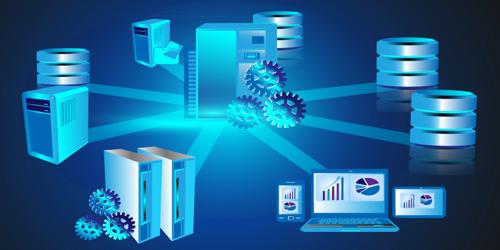A database management system (DBMS) is a software package designed to define, manipulate, retrieve and manage data in a database. A DBMS generally manipulates the data itself, the data format, field names, record structure, and file structure. It also defines rules to validate and manipulate this data.
A database is the back-end of an application. A DBMS receives instruction from a database administrator (DBA) and accordingly instructs the system to make the necessary changes. These commands can be to load, retrieve or modify existing data from the system.
The different advantages of a database management system (DBMS) are as follows:
(1) Improved data sharing: The DBMS helps create an environment in which end users have better access to more and better-managed data. Such access makes it possible for end users to respond quickly to changes in their environment.
(2) Improved data security: The more users access the data, the greater the risks of data security breaches. Corporations invest considerable amounts of time, effort, and money to ensure that corporate data are used properly. A DBMS provides a framework for better enforcement of data privacy and security policies.
(3) Better data integration: Wider access to well-managed data promotes an integrated view of the organization’s operations and a clearer view of the big picture. It becomes much easier to see how actions in one segment of the company affect other segments.
(4) Minimized data inconsistency: Data inconsistency exists when different versions of the same data appear in different places.
(5) Improved data access: The database management system (DBMS) makes it possible to produce quick answers to ad-hoc queries. From a database perspective, a query is a specific request issued to the DBMS for data manipulation.
(6) Improved decision making: Better-managed data and improved data access make it possible to generate better-quality information, on which better decisions are based.
(7) Increased end-user productivity: The availability of data, combined with the tools that transform data into usable information, empowers end users to make quick, informed decisions that can make the difference between success and failure in the global economy.
(8) Providing Backup and Recovery: A DBMS must provide facilities for recovering from hardware or software failures. The backup and recovery subsystem of the DBMS is responsible for recovery.
(9) Restricting unauthorized access: When multiple users share a database, it is likely that some users will not be authorized to access all information in the database.
(10) Concurrency Control: DBMS systems provide mechanisms to provide concurrent access of data to multiple users.















